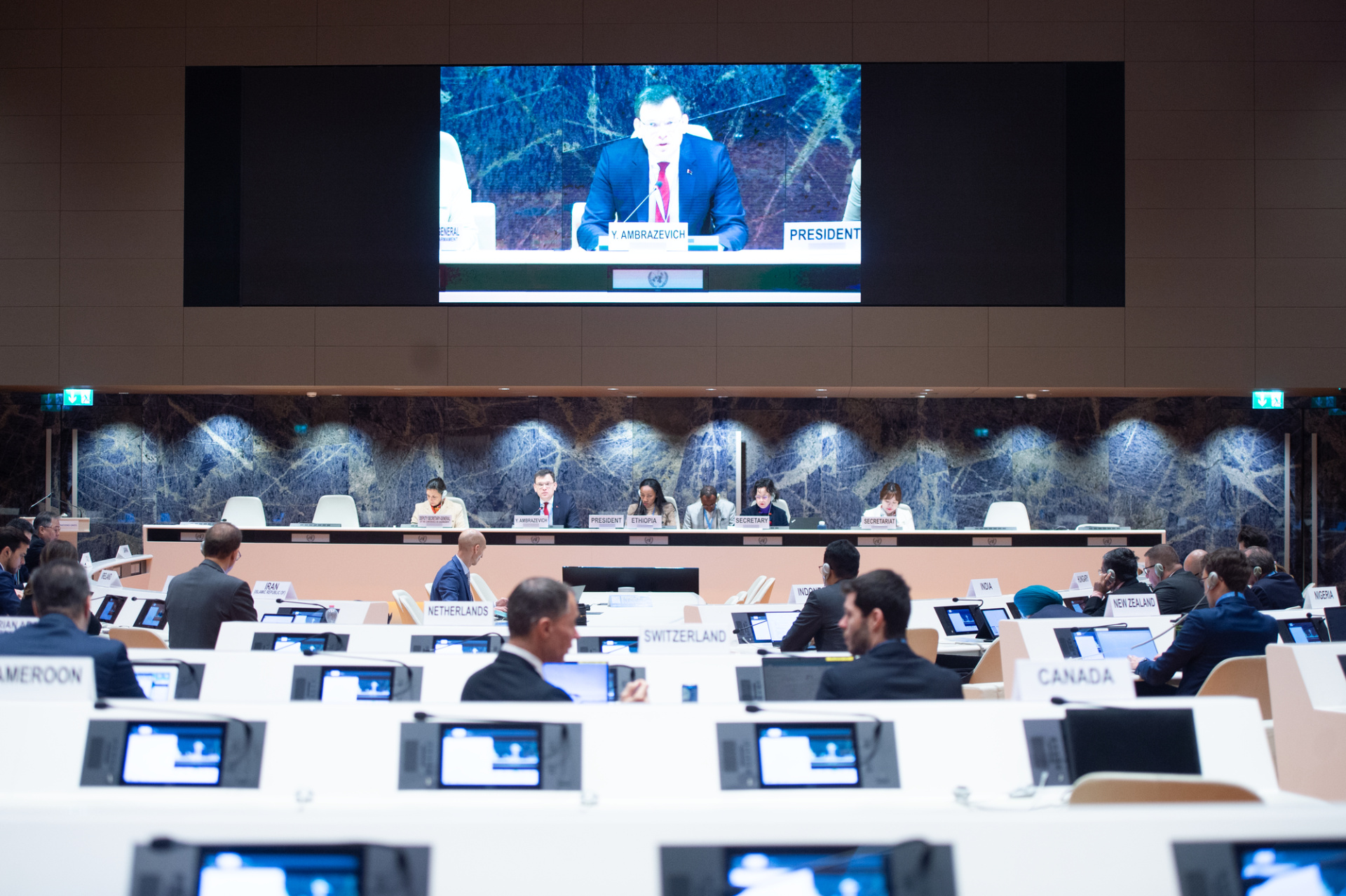
The Conference on Disarmament was established in 1979 as the single multilateral disarmament negotiating forum of the international community. The current Director-General of UN Geneva, Tatiana Valovaya, is also the Secretary-General of the Conference on Disarmament as well as the Personal Representative of the UN Secretary-General to the Conference.
During their meetings, happening three times a year, the Conference’s 65 Member States currently focus on the following topics:

The Anti-Personnel Landmine Convention (APLC) is the treaty which prohibits for humanitarian reasons the use, development, production, stockpiling, retaining or transfer of anti-personnel mines. It thus aims at putting an end to the suffering and casualties caused by anti-personnel mines, that kill or maim every year thousands of innocent civilians, obstruct economic development and reconstruction, and inhibit the repatriation of refugees and internally displaced persons.
The Biological Weapons Convention (BWC) , the first multilateral disarmament treaty banning the production and use of an entire category of weapons, was the result of prolonged efforts by the international community. All BWC meetings are held in Geneva and are serviced by the BWC Implementation Support Unit in the Geneva Branch of the Office for Disarmament Affairs.
The Convention on Cluster Munitions was concluded by the Dublin Diplomatic Conference in 2008. The tasks performed by the UN Secretary General are mandated in the Convention and relevant General Assembly resolutions. These include the collection and dissemination of national transparency reports, the facilitation of clarification of compliance; and the convening of the Meetings of States Parties and Review Conferences.
The Convention on Certain Conventional Weapons (CCW) is a key instrument of international humanitarian law and, with its five protocols, seeks to ban or restrict the use of specific types of weapons that have indiscriminate effects on civilians or cause unnecessary suffering for combatants. Since 2016, a Group of Governmental Experts (GGE) of the CCW is examining possible challenges posed by emerging technologies in the area of lethal autonomous weapons systems (LAWS). CCW meetings are held in Geneva and are serviced by the CCW Implementation Support Unit in the Geneva Branch of the Office for Disarmament Affairs.
In the field of Small Arms and Light Weapons (SALW) and of the Arms Trade Treaty (ATT) , the Geneva Branch ensures both the liaison with the Office for Disarmament Affairs in New York as well as with the Geneva-based Non-Governmental and International Organizations, and represents the Office in related meetings held in Geneva.
UN Geneva also hosts other meetings related to disarmament instruments such as sessions of the Advisory Board on Disarmament Matters , the Preparatory Committee of the Review Conferences of the Nuclear Non-Proliferation Treaty (NPT) , expert panels and seminars.